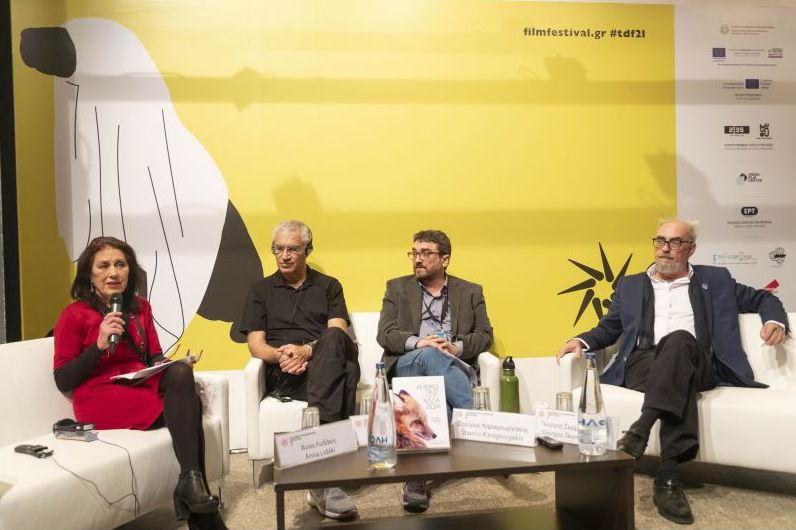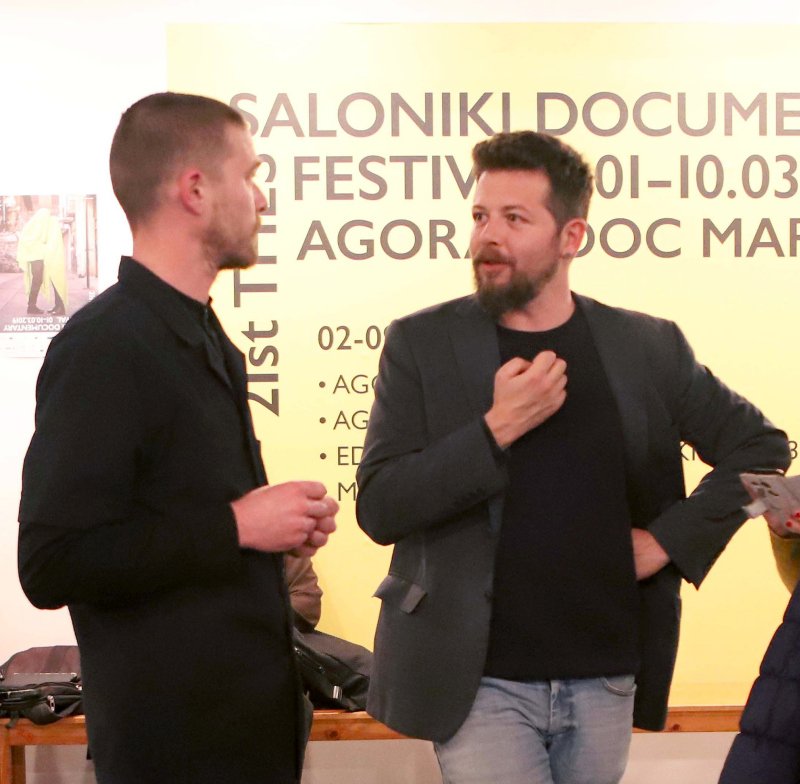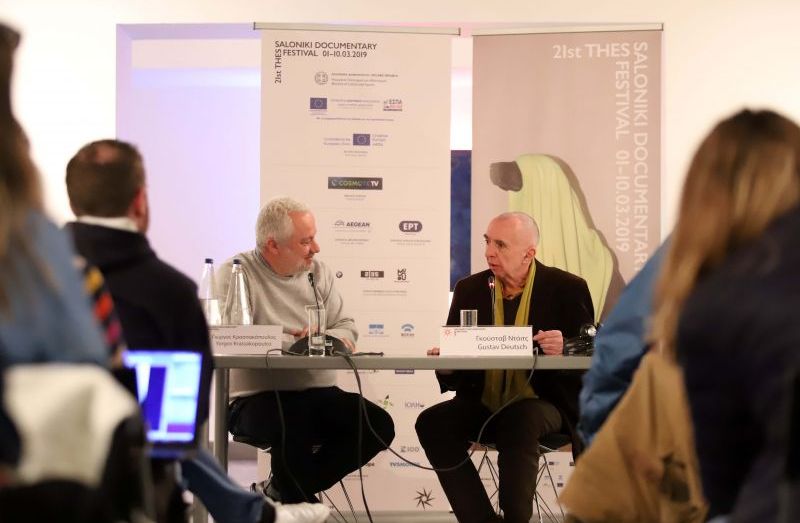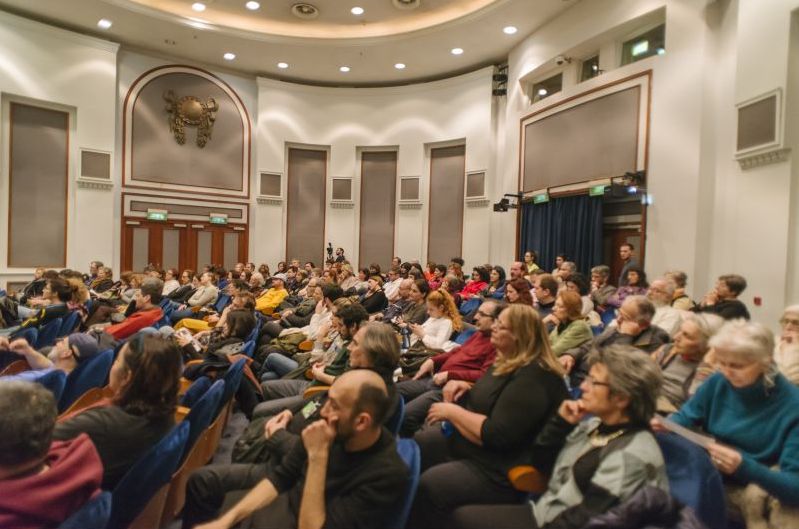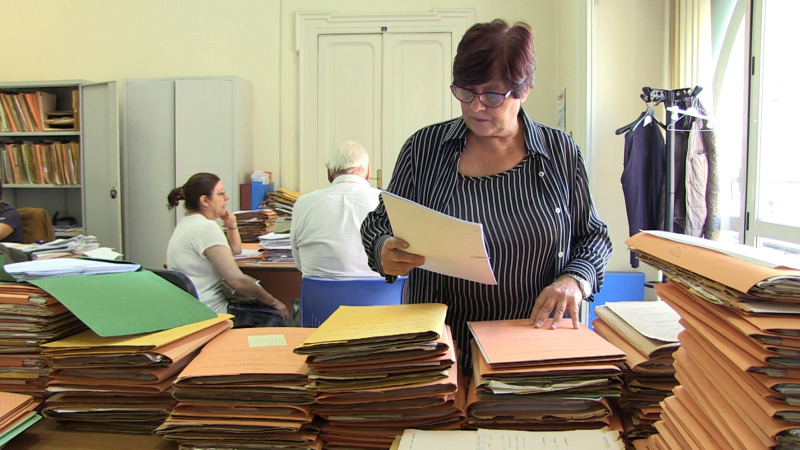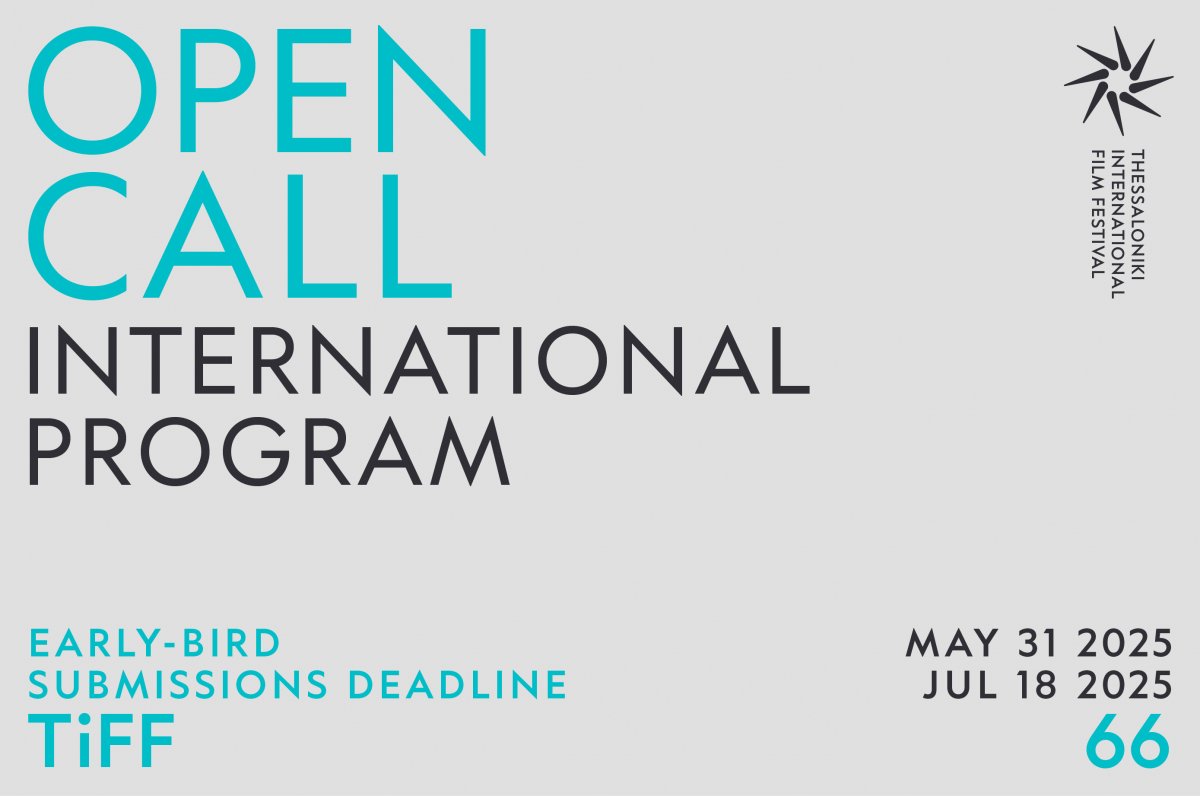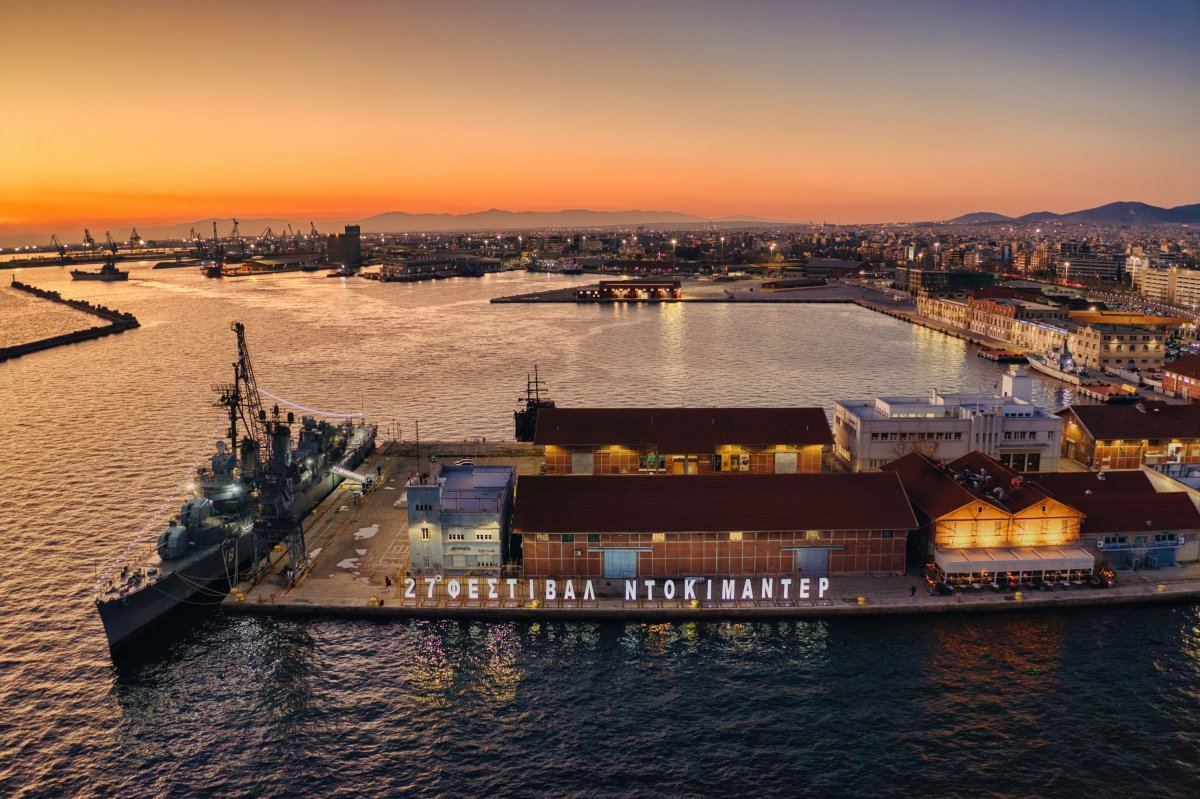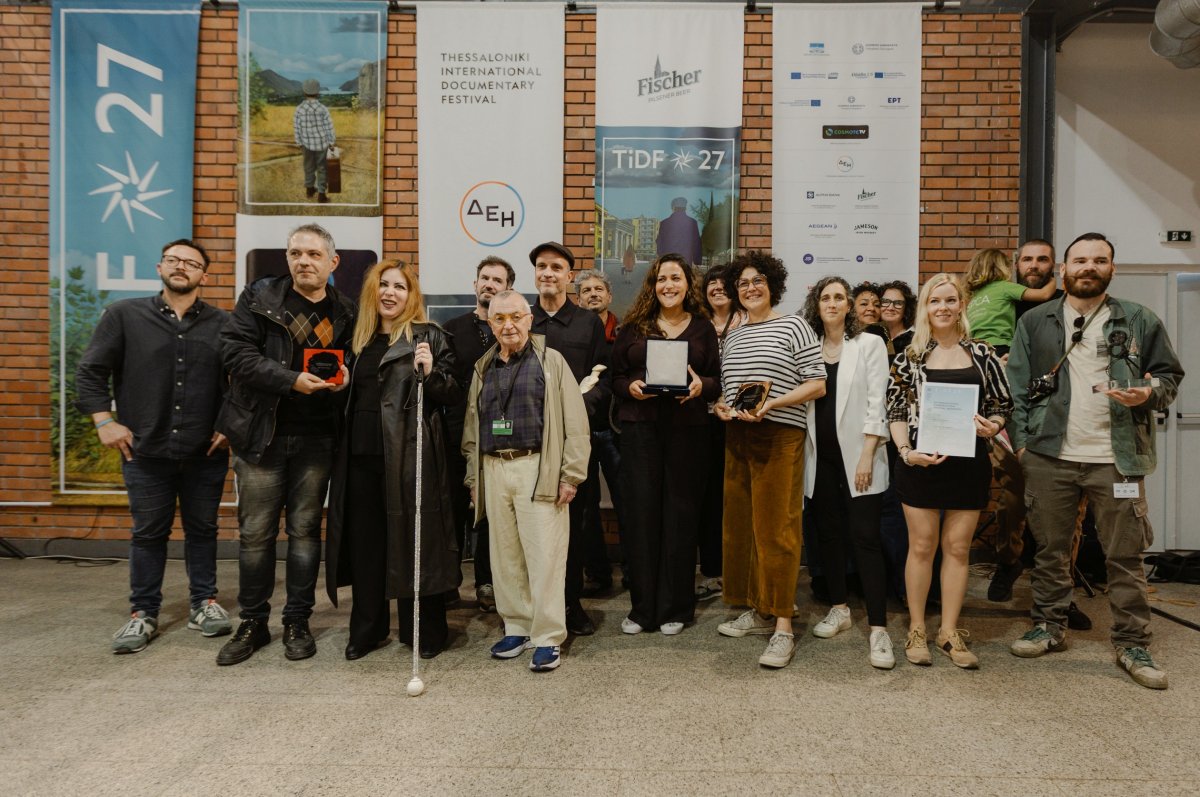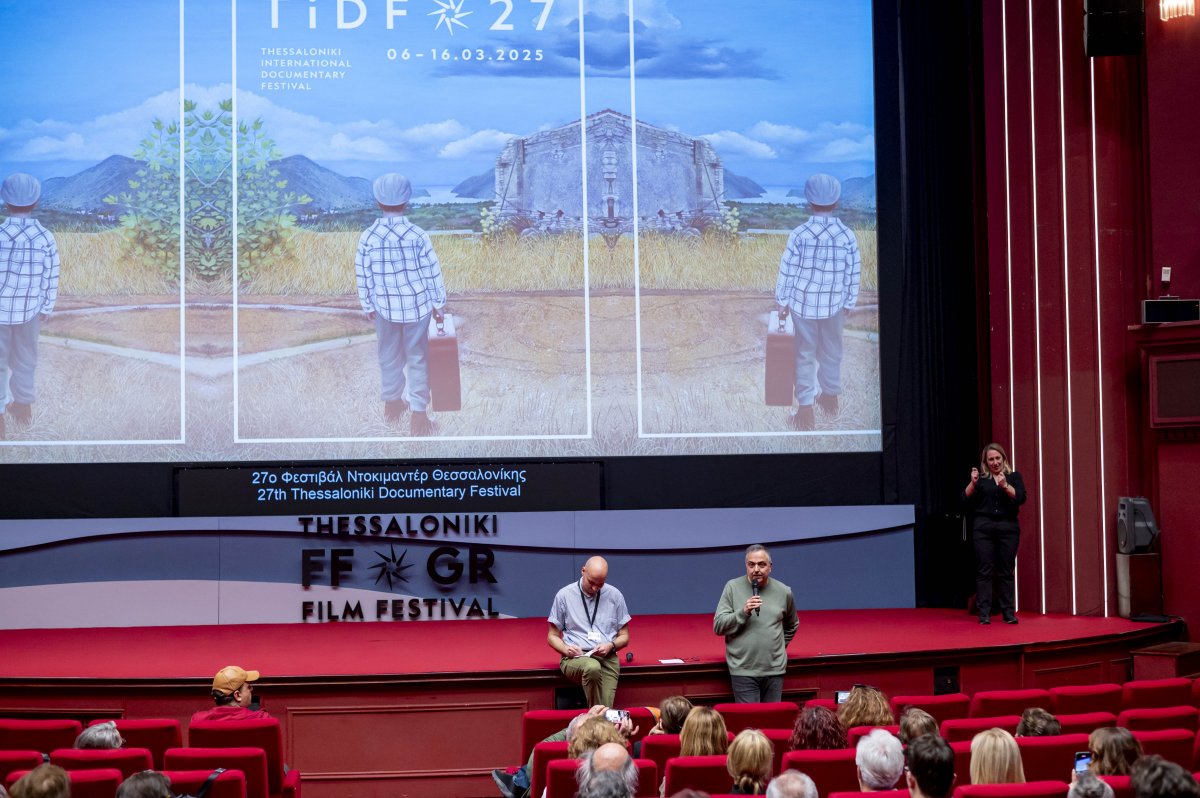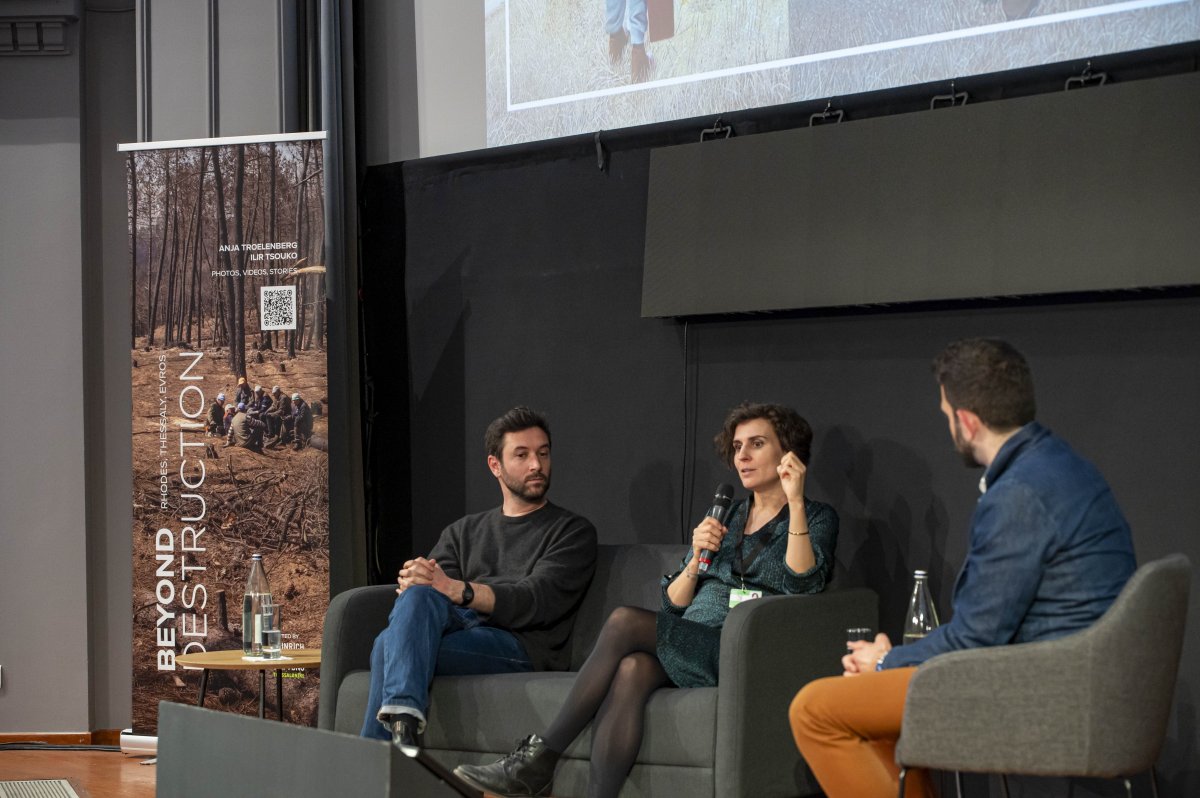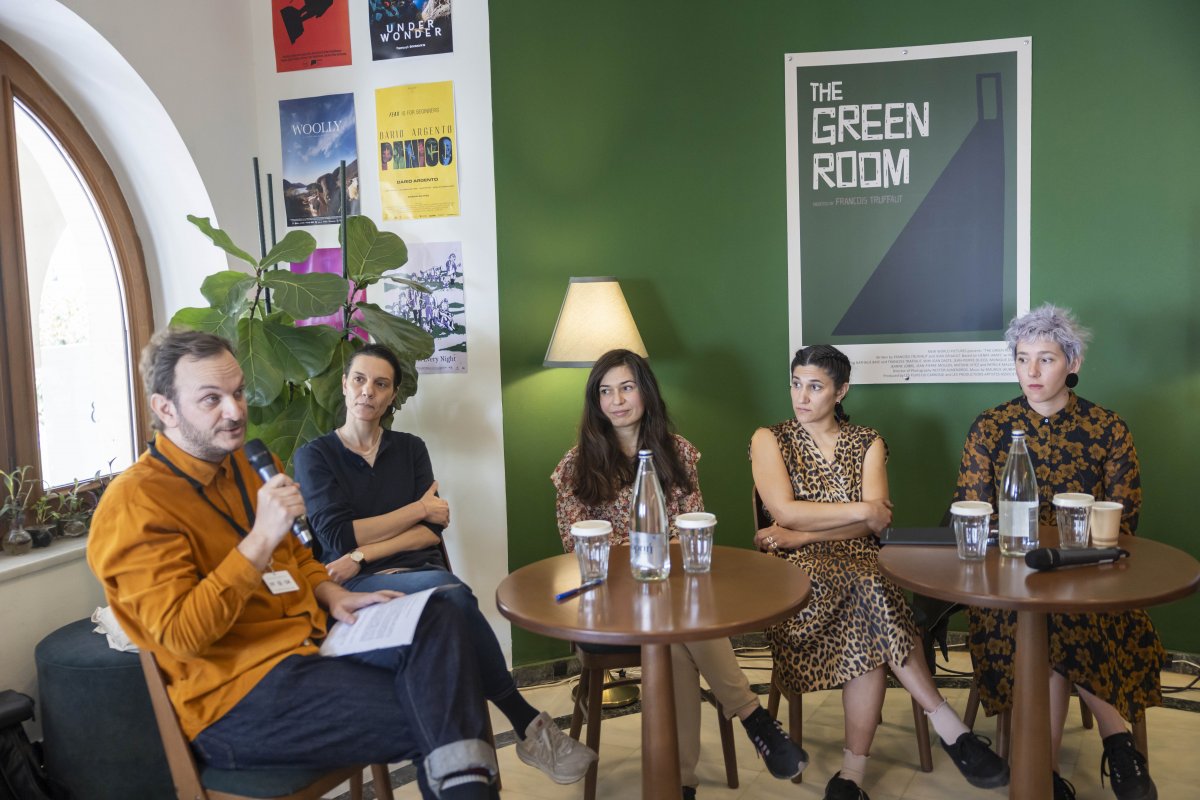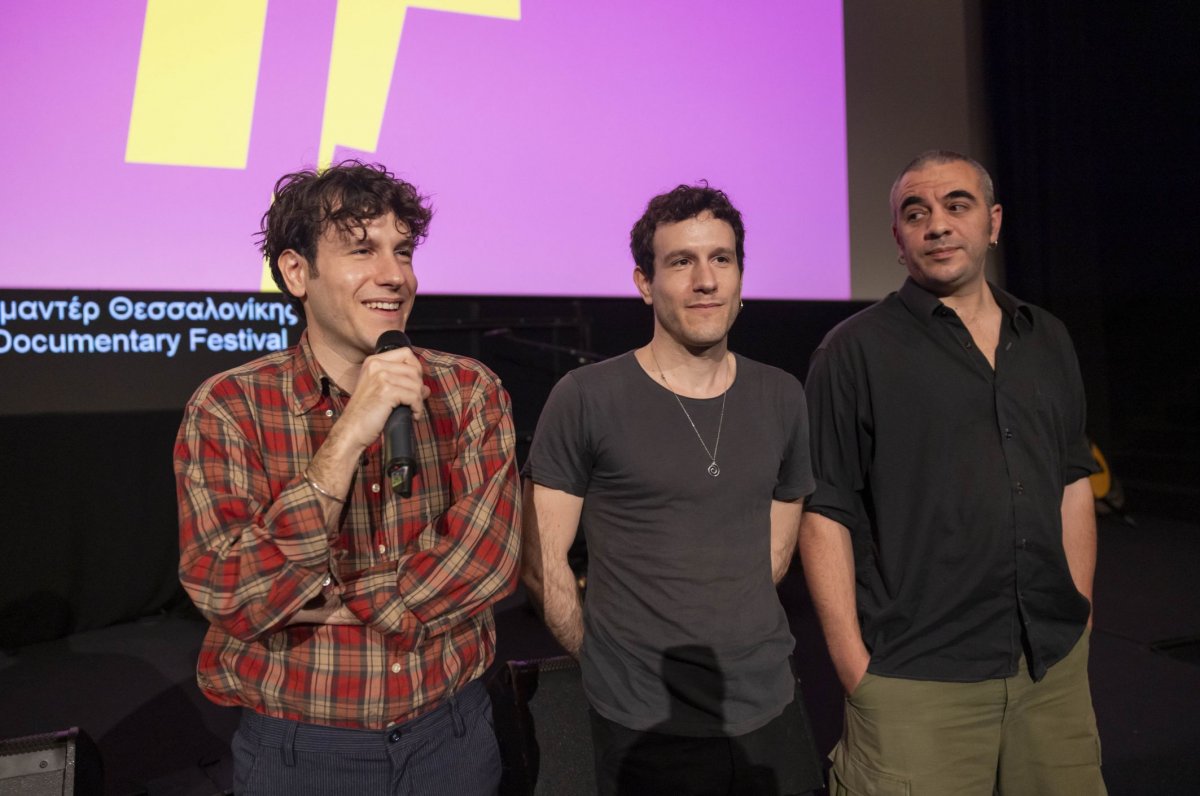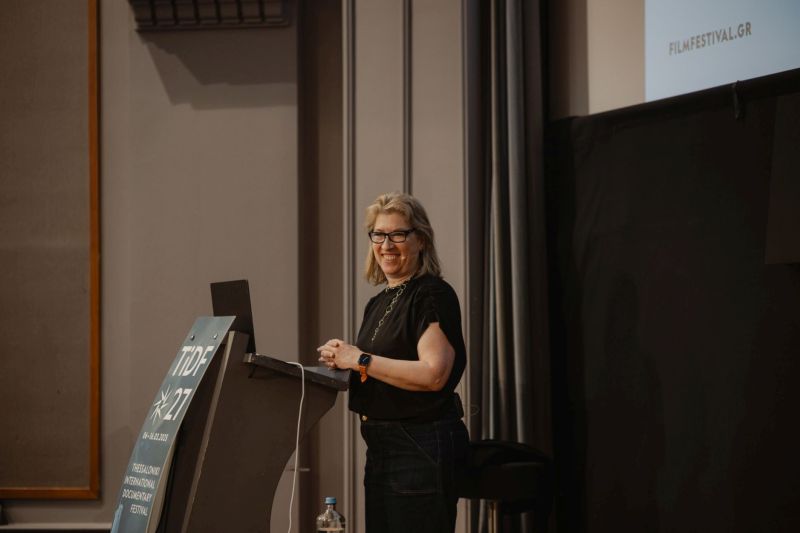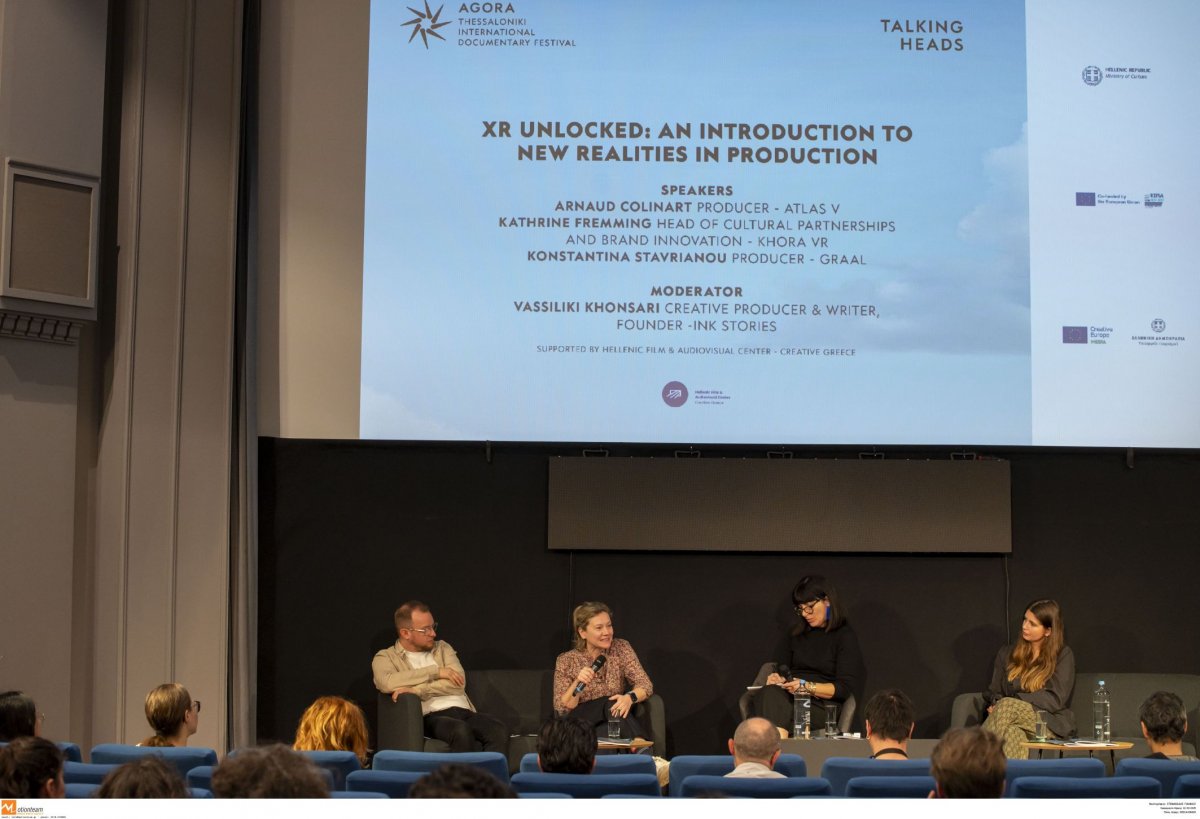How much and in what ways does man differ from animals? What are the moral boundaries in experimenting with animals? How fragile is our relationship with them? How does art and philosophy converse with the animals? What does our stance towards animal kingdom reveal for our species? These are some of the questions raised in the open discussion “Why Look at Animals?” held on Tuesday 5 March at Warehouse C, as part of the 21st Thessaloniki Documentary Festival.
News
For more information please contact Press and Communication Department.
Presentation of the “City and the City” project, by Syllas Tzoumerkas and Christos Passalis
www.filmfestival.gr
An exciting and outside-the-box project was presented, for the first time, in the 21st Thessaloniki Documentary Festival, on Tuesday, March 5th, at Warehouse C, within the framework of the Market Talks event held by the Festival’s Agora Doc Market. Greek filmmaker-scriptwriter Syllas Tzoumerkas (A Blast, The Miracle of the Sargasso Sea) and Greek actor-director Christos Passalis (Dogtooth, blitz theatre group) presented the project titled “City and the City”, commissioned by the Thessaloniki Film Festival and the Metropolitan Organization of Museums of Visual Arts of Thessaloniki (MOMus).
Open discussion with Gustav Deutsch
www.filmfestival.gr
Austrian film director Gustav Deutsch introduced the audience to the secrets of his sui generis cinema in an open discussion which took place on Monday, March 4th 2019 at the MOMus-Experimental Center for the Arts, as part of the 21st Thessaloniki Documentary Festival, and in the presence of the Thessaloniki International Film Festival Artistic Director, Mr Orestis Andreadakis. This year’s TDF edition pays tribute to Gustav Deutsch’s work by screening seven of his signature films.
Special Screening in memoriam of Greek filmmaker Giorgos Karipidis
www.filmfestival.gr
The 21st Thessaloniki Documentary Festival, in an emotionally charged ambiance, honored the memory of the recently deceased Greek filmmaker Giorgos Karipidis (1946-2019) with a special screening of his rare short film The Painter Theofilos, held on Monday March 4th, at Pavlos Zannas theater. The film had been bestowed with the first prize, as well as the critics’ award, in the 1979 Thessaloniki Film Festival. The widow of the deceased Rania Mprilaki-Karypidi also attended the event.
“The Paper Chase” tribute
www.filmfestival.gr
The perplexing structures of bureaucracy do not differ much from one place to another around the world: long queues, longer delays, a lot of wasted time and uncertainty are some of its most common manifestations. The 21st Thessaloniki Documentary Festival sheds light to the global phenomenon of bureaucracy through a free-admission tribute titled “The Paper Chase” with 5 feature documentaries of recent production that will have their Greek premiere in Thessaloniki.


